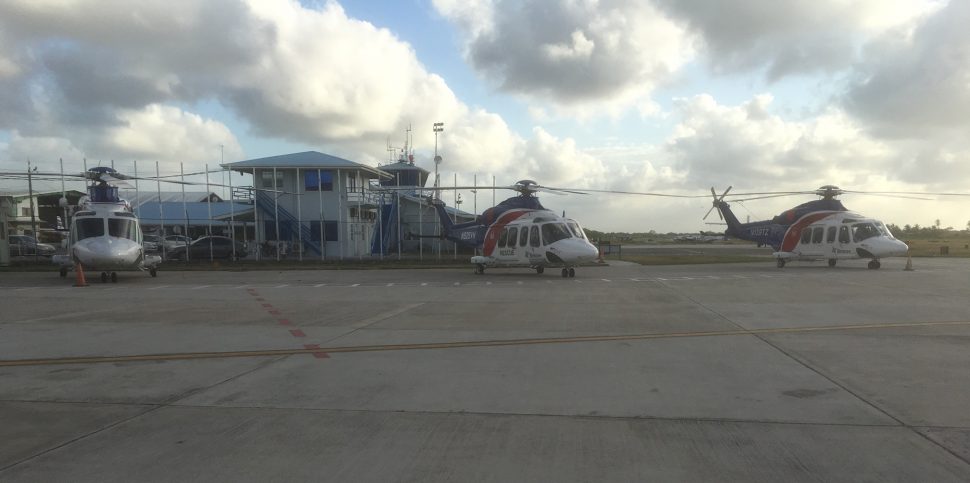Bristow U.S. LLC, ExxonMobil’s offshore helicopter services provider, has advertised locally for pilots but the requirements it has outlined have raised questions once again about the country’s readiness for the imminent oil and gas sector.
The company is seeking Federal Aviation Administration (FAA) licensed Pilots-in Command and Qualified Aircraft Pilots for its AW139, S92 and S76 helicopters and the required criteria include a total of 5,000 hours flying time, 4,000 hours command time, 3,000 hours offshore.
Licensed aircraft engineers are also being sought for the AW139 and S92 helicopters, and the required qualifications include that the applicant must have completed the AW139 Factory Training School and S92 Factory Training School and have five years of Maintaining Helicopters (Heavy Aircraft) in a High Volume Field Base Environment. The engineers are also to be in possession of an FAA Airframe and Power Plant Licence.
Local pilot Leary Barclay told this newspaper that no one in Guyana currently possesses the qualifications sought by the company. “Anything larger than the 412 and we don’t fly and we don’t fly offshore. So you would never find anyone with that experience. Niche flying is specialized; that person has to come and be taught to fly with the company and that process can take about five to six years. If you train, it has to be from scratch. And, as I said, it will take five to six years and with high safety standards before someone can go out there,” he explained.
“No one will meet the requirements for the engineer also, because again they would have had to have been taught and, as you know, the company hasn’t been here that long and it is very specialised and technical…,” Barclay added.
The APNU+AFC government has been criticised for not acting with greater dispatch on local content legislation but some experts have argued that even with legislation this country would have a lot of catching up to do given that it is new to the oil and gas sector.
Nearly four years have passed since the first major discovery by ExxonMobil and several consultancies later the local content policy is still to be finalised.
Critics have said that over this period, local companies and the labour force have lost out on myriad opportunities to overseas companies because of the absence of a local content policy and attendant legislation.
The local content policy for the oil and gas sector is still in draft form and the Department of Energy (DoE) is aiming to finalise it by the end of this month, according to DoE Head Dr. Mark Bynoe.
Dr. Michael Warner, a British local content expert and Founder and Director of the Local Content Solutions Limited, was in February of this year awarded a contract to complete the local content policy framework.
Bynoe has also spoken about working with the country’s technical, vocational, educational and training (TVET) institutions and pointed out that the government continues to offer assistance in a multiplicity of ways by establishing collaboration and a coherent strategy as the nation prepares for first oil.





